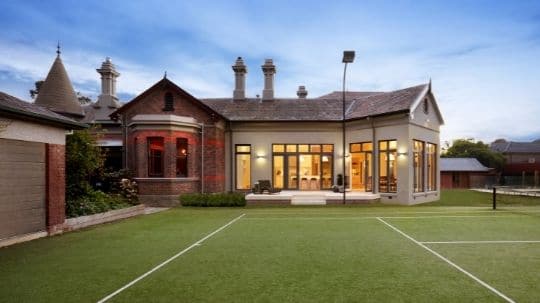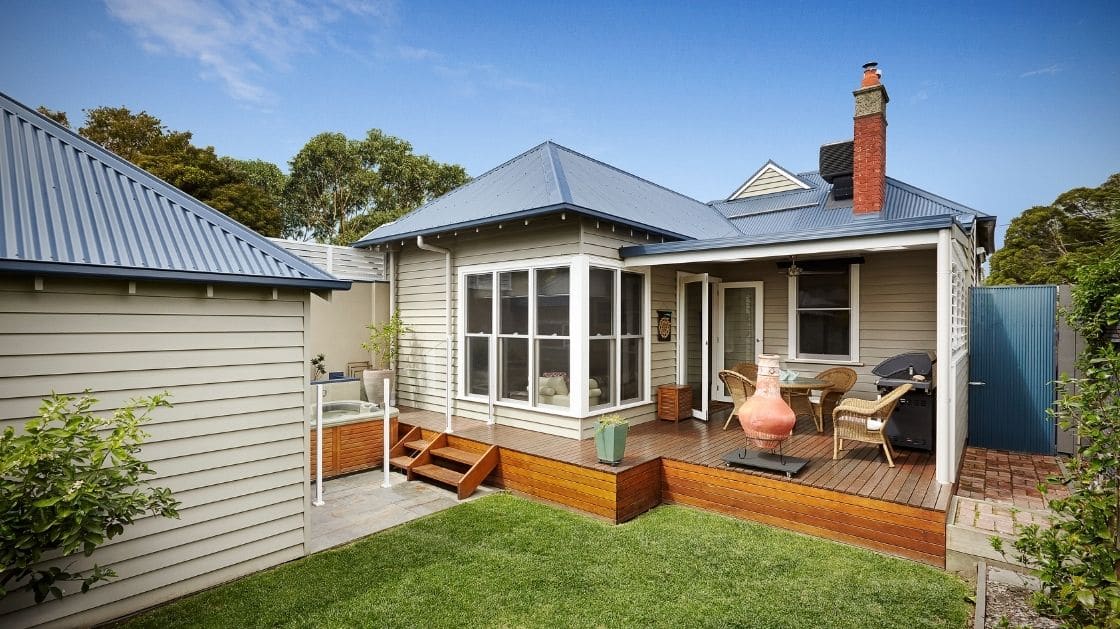State and local-listed historical homes—a basic guide for homeowners
Top 4 important heritage house rules you should know

1. Heritage Overlays
Homes that are subject to a heritage overlay will not necessarily require a town planning permit for minor maintenance tasks or repairs. Whether swapping out rusty guttering or restoring a worn-out verandah, small changes can usually be handled without additional paperwork.

2. Renovating heritage facades

3. Heritage-listed residential properties in Victoria
Heritage-listed homes can come with a higher price tag and a set of complex rules. It is sometimes assumed these regulations mean that no alterations are allowed to the property, but this is not necessarily correct. Improvements to heritage-listed homes may be accepted to ensure proper upkeep and suitability for a modern lifestyle, including practical ways to improve energy efficiency in an older home.
The key is understanding which aspects of the original structure are needed to maintain its unique character. If the property is listed by the state government, it’s generally a more significant building with stricter controls.
Engage a skilled builder to guide you through the design phase and liaise with the council on your behalf. You may qualify for incentives when making home improvements to a heritage home, including complimentary advice, a loan subsidy or a grant.

4. Heritage extensions and alterations
When you’re thinking about extending or making changes, a few factors come into play, including how noticeable the changes will be from the street and the materials you plan to use.
Homeowners generally have more freedom to make changes at the rear of the property where they are less visible than alterations to the front.
When adding anything new to your heritage home, you need to ensure that any additions complement the original building. However, it is generally a requirement that new work is clearly identifiable as being new. A qualified builder with experience in heritage home additions or renovations will be able to guide you.
Request a call back to discuss your next project


Heritage protection levels: State or local listing
Before you purchase a heritage property, check the address to see if it’s a state or local heritage listing.
For properties listed under the local heritage overlay, the local council is the go-to for heritage approvals and to help answer your questions. For properties listed on the Victorian Heritage Register, you must contact your local council to discuss any planned changes as well as getting a permit (or exemption) from Heritage Victoria.
Possible insurance requirements
Homeowners may not need specific home insurance for a heritage home unless there are particular circumstances–like if the home will be empty, needs rewiring, or will be used for business.
Sometimes, Heritage Victoria may request reconstructing the property using the same materials or replicating the same features. The condition of the property is often the most essential aspect for insurers to understand–they generally focus on maintenance issues, such as the plumbing and electrical wiring.
If your builder has experience in extending or making alterations to heritage homes, they will be able to provide you with some general advice about insurance requirements. Please note however, that it is important for you to obtain independent expert insurance advice before proceeding.
Request a call back to discuss your next project
10 frequently asked questions and answers about buying a heritage home
1. When does an older home qualify as a heritage property?
2. What does it mean for a property to be heritage-listed?
3. What is a heritage overlay?
Just under 10% of all properties in Victoria hold historic significance, and a heritage overlay safeguards them through the local council or shire. Building in a heritage overlay often means applying for a planning permit from the council for visible changes, such as demolition, building construction or external alterations. Generally, permits are not required for ongoing maintenance, repairs, or repainting the structure using the same colour. For clarification on the requirements in your area, speak with your builder or local council.
4. Are there additional heritage controls?
5. How can I find out if a heritage overlay protects a property?
6. What responsibilities does a heritage homeowner have?
7. Is it possible to renovate a heritage-listed property?
Yes. Home renovations and changes can be made to a heritage-listed property as long as they are approved by Heritage Victoria. Usually, the heritage protection extends to the entire property, so if you’re thinking of removing trees, demolishing outbuildings, or relocating a fence, you’ll need a permit.
Heritage Victoria suggests that it is best to contact them as early as possible in the design and planning phase for a smooth renovation journey. This helps clarify what’s permissible and allows you to tap into the expertise of their heritage architects and other specialists.
8. Can I renovate a home under a heritage overlay?
9. What if I don’t get the necessary permits for my heritage property?
Failing to apply for the necessary permits can lead to hefty penalties. The local council can issue infringement notices, ‘stop work’ orders or take the breach to court. Non-compliance could land you a six-figure fine.
If your property is listed on the state heritage register, the consequences can be higher, with fines of up to several hundred thousand dollars or even imprisonment. It’s best to check the fees and penalties on Heritage Victoria’s site.
10. Is buying a heritage home a good investment?

Spacemaker: Your builder with heritage homes and overlays expertise
If you’re considering home renovations in Melbourne for your heritage property, Spacemaker can help. Our qualified team has over 50 years of experience in custom renovations and extensions, including historical homes and homes with heritage overlays.
Our skilled builders are well-informed and familiar with the rules and regulations of locally listed and state-listed heritage properties in Victoria. We take away the stress about legal requirements by liaising with local councils and acquiring the necessary permits for you. Speak to a Spacemaker consultant today and let us take care of the entire process for you from start to finish.
*All information correct at time of publication. Any information provided here is of a general nature only. Please check the rules and requirements for your heritage listed property directly with your builder and local council and if in doubt, seek independent professional advice.
